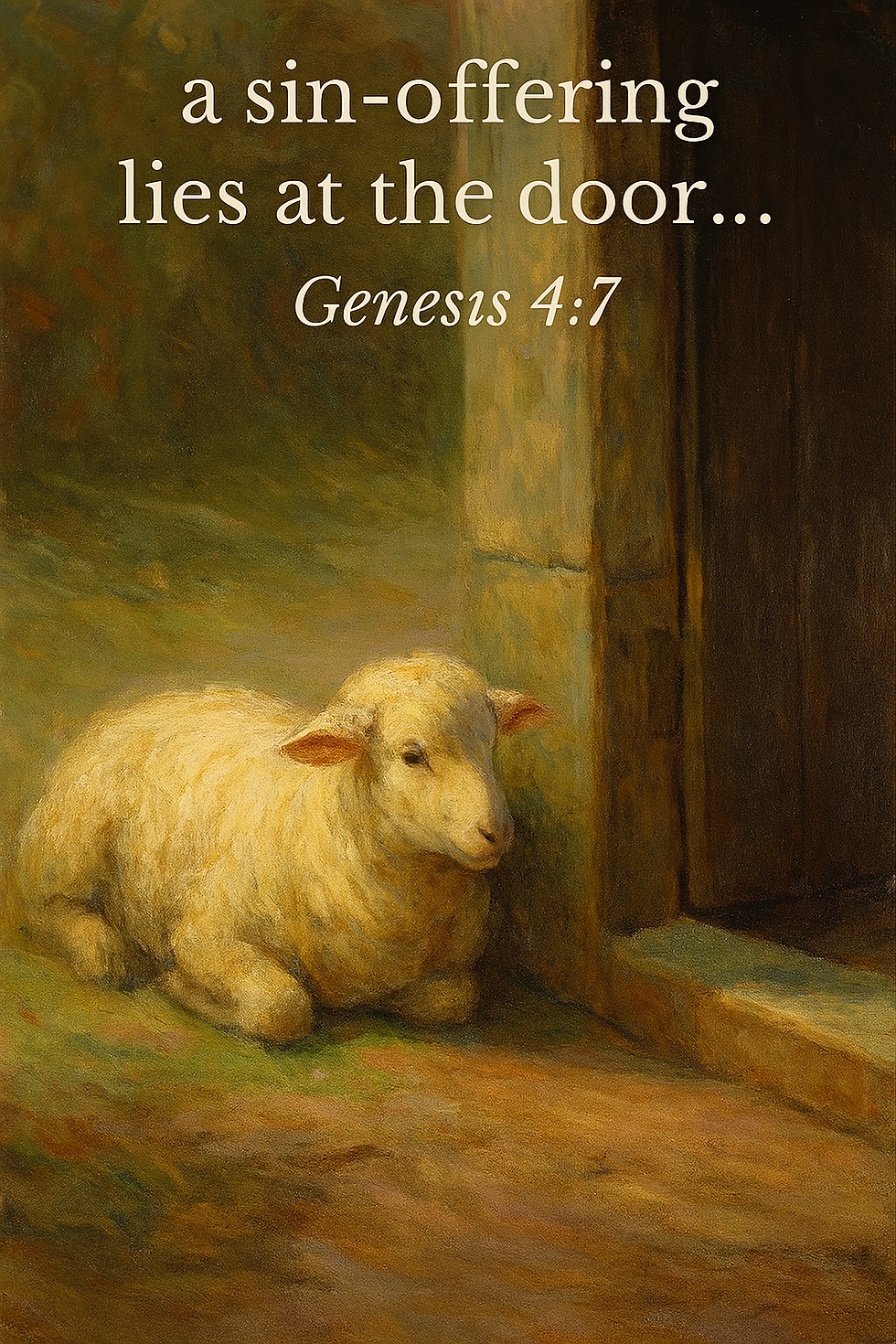The Ten Commandments
- Leisa Baysinger

- Jan 28, 2017
- 7 min read
This lesson could be considered as Part II of the teaching, “What is the Royal Law? James 2:8”
In Exodus 20:1-17, and again in Deuteronomy 5:6-21, we read the Words spoken by the LORD to the Children of Israel. In traditional Christianity we commonly refer to these Words as The Ten Commandments.
Yeshua (Jesus) nor His disciples would have referred to them in this manner. In the Hebrew language they were called, The Ten Words, Aseret haDevarim. This is what the Jewish people still call them to this day. If God had chosen to call them the Ten Commandments in Hebrew, He would have called them Aseret haMitzvot. Mitzvot means commandments in Hebrew and Devarim means words. The translation, ten commandments, was a Greek translation.
For more clarity we read in the following scriptures:
Jewish Publication Society (JPS)
Exodus 34:28, “ And he was there with the LORD forty days and forty nights; he did neither eat bread, nor drink water. And he wrote upon the tables the words of the covenant, the ten words”.
Deuteronomy 4:13, “And He declared unto you His covenant, which He commanded you to perform, even the ten words; and He wrote them upon two tables of stone”.
Deuteronomy 10:4, “And He wrote on the tables according to the first writing, the ten words, which the LORD spoke unto you in the mount out of the midst of the fire in the day of the assembly; and the LORD gave them unto me”.
These instructions, or Ten Words, are referred to by the Jewish people as the “Scriptures”, “Word” of HaShem or the “covenant”. Whenever one reads the Bible (Old or New Testaments) they should keep in mind that when the phrase, the “Scriptures”, “the Word of God”, “the Word”, or “thy Word” is used, that it is referring to these words spoken by God to the Children of Israel, or to statements made from the Prophets (who obeyed these scriptures and spoke from God). Either way, it is referring to what we call the Old Testament. The following or good examples:
Matthew 4:4, “But he answered and said, It is written, Man shall not live by bread alone, but by every word that proceedeth out of the mouth of God”.
Mark 7:13, “Making the word of God of none effect through your tradition, which ye have delivered: and many such like things do ye”.
Luke 11:28, “But he said, Yea rather, blessed are they that hear the word of God, and keep it”.
John 17:14, “I have given them thy word; and the world hath hated them, because they are not of the world, even as I am not of the world”.
John 17:17, “Sanctify them through thy truth: thy word is truth”. This is a quote from Psalms 119:142 where, in the Hebrew it states, “thy Word (Torah) is truth”.
Because there are so many passages in the New Testament which use the word scripture, I will list only two:
II Timothy 3:16, “All scripture is given by inspiration of God, and is profitable for doctrine, for reproof, for correction, for instruction in righteousness:”
Romans 4:3, “For what saith the scripture? Abraham believed God, and it was counted unto him for righteousness”. This comes from Genesis 15:6, “And he believed in the LORD; and he counted it to him for righteousness”.
The 10 Words, or Commandments, are divided up differently by Jews, Protestants and Catholics. The Jewish people divide them up in a way that makes more sense with regards to God's promise of making Himself known to them by bringing them up out of Egypt. This would have been the division of “The Words” that Yeshua would have understood. I tend to agree with their division because it makes more sense prophetically. Just to add a tidbit here: prophetically the number 10 in Hebrew denotes perfection of divine order.
In addition, in Jewish understanding, these 10 Words (Commandments) are categories or divisions for the other 613 teachings and instructions given by Yahweh in the Old Testament. These 10 Words were written on stone by HaShem but then He gave Moses further teachings and instructions to pass along to the people; which were to expound upon these 10 words and how they were to walk them out in their lives. All of these 10 Commandments, and the expounding upon them by further commands by God, were all considered The Word of God, or the Scriptures.
The Jewish people divide them up as follows:
1st Commandment (1st Word) - Exodus 20:2
“I am the LORD thy God, which have brought thee out of the land of Egypt, out of the house of bondage”. This commandment was considered to convey belief in only ONE GOD, whose name was YHVH, sometimes pronounced Yahweh or Yehovah, this Yahweh to be identified as the ONE who brought them out of the bondage of Egypt. The God of Abraham, Isaac and Jacob.
2nd Commandment - Exodus 20:3-6
“Thou shalt have no other gods before me. Thou shalt not make unto thee any graven image, or any likeness of any thing that is in heaven above, or that is in the earth beneath, or that is in the water under the earth. Thou shalt not bow down thyself to them, nor serve them: for I the LORD thy God am a jealous God, visiting the iniquity of the fathers upon the children unto the third and fourth generation of them that hate me; And shewing mercy unto thousands of them that love me, and keep my commandments”. This commandment was the prohibition against improper worship. Included within it would be the prohibition against worshiping other gods and of improper forms of worship of the ONE TRUE God, YHVH. Hence, no idol worship. This may seem very easy, but idol worship would have included doing anything to worship Yahweh that they did to worship their false gods. For example, the prohibition against “boiling a young goat in its mothers milk”. This scripture is often mis-understood. The pagans worshiped their fertility gods by doing this because they believed it brought fertility. Yahweh desires for us to dis-associate ourselves from any of their forms of worship. We can't take a pagan practice, call it by some other name, and then say that we are worshiping Him. He hates this! What He calls unholy cannot be made holy by man.
3rd Commandment - Exodus 20:7
“ Thou shalt not take the name of the LORD thy God in vain; for the LORD will not hold him guiltless that taketh his name in vain”. This commandment would include all teachings and instructions having to do with perjury (taking an oath in His name that one is speaking the truth, when in fact they know they are lying), breaking or delaying the keeping of vows (promises), and swearing by His Name falsely.
4th Commandment - Exodus 20:8-11
“Remember the sabbath day, to keep it holy. Six days shalt thou labour, and do all thy work: but the seventh day is the sabbath of the LORD thy God: in it thou shalt not do any work, thou, nor thy son, nor thy daughter, thy manservant, nor thy maidservant, nor thy cattle, nor thy stranger that is within thy gates: for in six days the LORD made heaven and earth, the sea, and all that in them is, and rested the seventh day: wherefore the LORD blessed the sabbath day, and hallowed it”. Within this commandment was included all the teaching and instructions about sacred times or seasons. It would have included the weekly Sabbath, as well as the Appointed Times of Yahweh, The Feasts, and any other sacred times. Within the Appointed Times of Yahweh were also Sabbath days that were to be observed.
5th Commandment - Exodus 20:12
“Honour thy father and thy mother: that thy days may be long upon the land which the LORD thy God giveth thee”. Included within this commandment were also the teachings and instructions about honoring, respecting, or obeying authoritative figures, ie teachers, kings, rulers of the land.
6th Commandment - Exodus 20:13
“Thou shalt not murder”. This also included any commandment regarding physically harming a person in any way. This harming could be done by another person, are by an animal owned by that person. We are responsible for our animals. This would include causing harm to someone because of hate. Like Yeshua said in the New Testament when elaborating upon this commandment, “murder begins in the heart”. You do not have to physically kill someone to harm them in such a manner as to cause demise in their life by hatred. This commandment does not say "thou shalt not kill" but "thou shalt not murder". God does permit us "to kill" under certain circumstances. For example: we are permitted to kill someone that is breaking into our house and trying to "kill" us. God allowed them to "kill" during war times. That is not considered murder by Biblical standards. Murder is hatred or lying in wait, scheming plans, etc to kill someone.
7th Commandment - Exodus 20:14
“Thou shalt not commit adultery”. Yeshua covered this one in the New Testament as well. Adultery begins in the heart. You do not have to physically touch someone to commit adultery, because it begins with lust. Therefore, this commandment contains all teachings against lust in any form; any form of sexual immorality falls under this category.
8th Commandment - Exodus 20:15
“Thou shalt not steal”. Under this category or division would fall any commandment against robbery, intent to steal or defraud someone, borrowing something from someone and then it becoming lost or destroyed, theft by any type of deception, kidnapping (which is stealing a person), or unethical business practices (like dishonest scales).
9th Commandment - Exodus 20:16
“ Thou shalt not bear false witness against thy neighbour”. This category involves all things pertaining to harming someone with our speech, it includes all sins related to speech; like lying, gossip, backbiting, slander, sowing discord.
10th Commandment - Exodus 20:17
“Thou shalt not covet thy neighbour's house, thou shalt not covet thy neighbour's wife, nor his manservant, nor his maidservant, nor his ox, nor his ass, nor any thing that is thy neighbour's”. This includes any prohibition against coveting. Wow, this covers a lot in scripture, including jealousy. There are too many sins to begin making a list about coveting; what doesn't belong to us but we wish it did.
I hope this lesson has added a little insight into the Word of God, The Scriptures.
Shalom!
Leisa


_PNG.png)





Comments